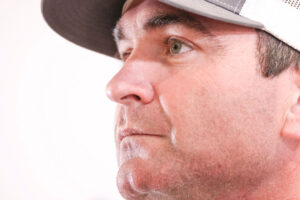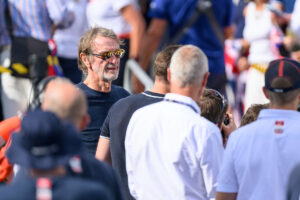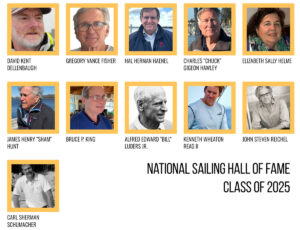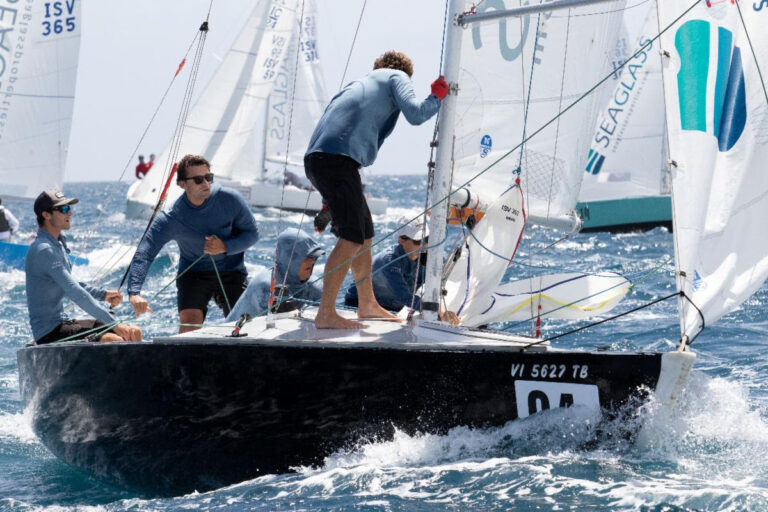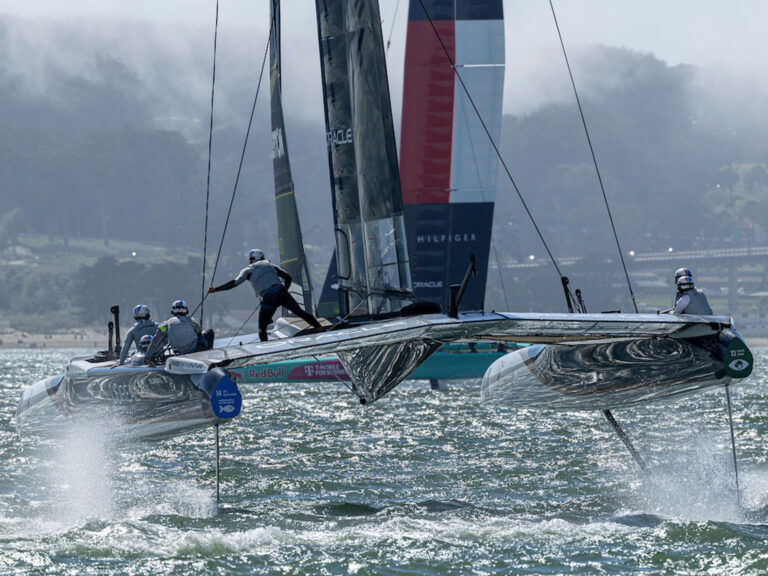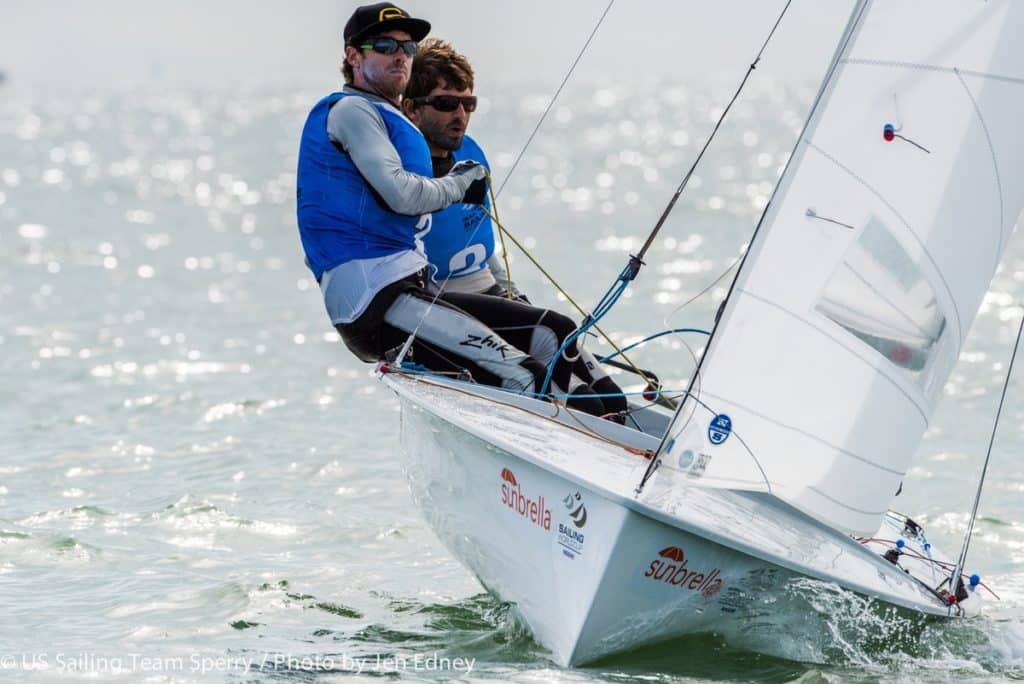
From the Olympic test events to training camps, almost every Olympic-bound sailor has had the opportunity to sail on Guanabara Bay and, more importantly, to match up against their competition prior to the Games. The practice regattas give both sailors and coaches a report card of sorts, providing feedback on their performance and areas of possible improvement. With the complications in current, wind pattern and other course challenges, learning the venue is also an added bonus.
In the 470 class, both men and women’s powerhouse teams have been throwing down in organized coaches’ regattas since mid-May. Most teams are the Olympic pairings we will see in August, with a few training partners sprinkled in. “The coaches rotate through being PROs and on the mark boats, so the competition has been pretty fair,” says US Sailing Team Sperry’s Briana Provancha.
For Stu McNay and Dave Hughes, these regattas have been vindication of their hard work leading up to Rio. They were uncontested in the US Sailing Team trials, and were able to turn their attention to the international fleet sooner than many of their teammates and their competition. They’ve consistently been in the top of the fleet in World Sailing events and class championships, including gold at the Sailing World Cup Miami in January, silver at the Trofeo Princess Sofia in March and bronze at 470 worlds in April.
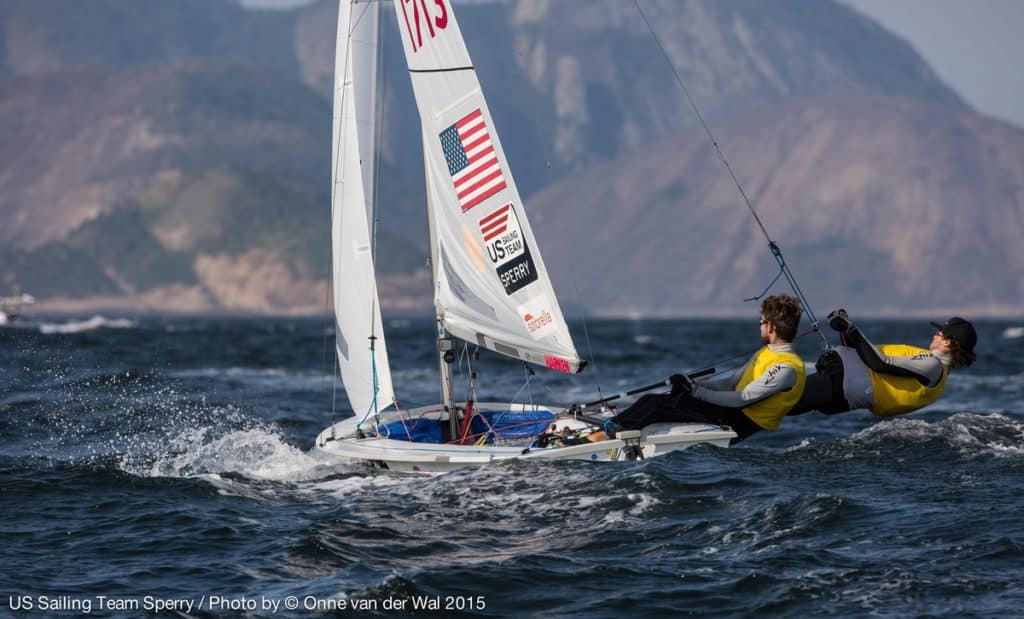
Of the three scheduled coach’s regattas, the American-flagged 470 team has won two, with the final competition scheduled to run July 11 to 18. “Of course, we’re stoked about having won both events,” says Hughes. “More importantly, we’re looking to keep that momentum going for Act 3 and the ‘Big Dance’ in August.”
In Act 1, May 13-20, McNay and Hughes finished 37 points ahead of the second place team, Lucas Calabrese and Juan de la Fuente from Argentina. Notably, they also finished well-ahead of the Croatians (Sime Fantela and Igor Marenic), the Australians (Mat Belcher and Will Ryan) and the Brits (Luke Patience and Chris Grube), all of whom are ranked higher in the World Sailing rankings than the Americans and have been lauded as medal favorites going in to the Games.
In Act 2, McNay and Hughes had a similarly strong performance, but finished only six points ahead of New Zealand’s Paul Snow-Hansen and Daniel Wilcox. The regatta, which ran from June 24-27, was smaller than the first, but the major players did compete and McNay/Hughes came out on top once again.
The Games, of course, will be its own regatta, but McNay and Hughes’ performances so far are encouraging omens for fans of American Olympic Sailing.

